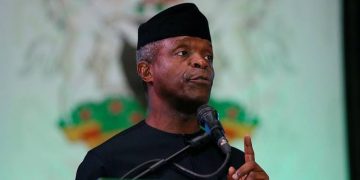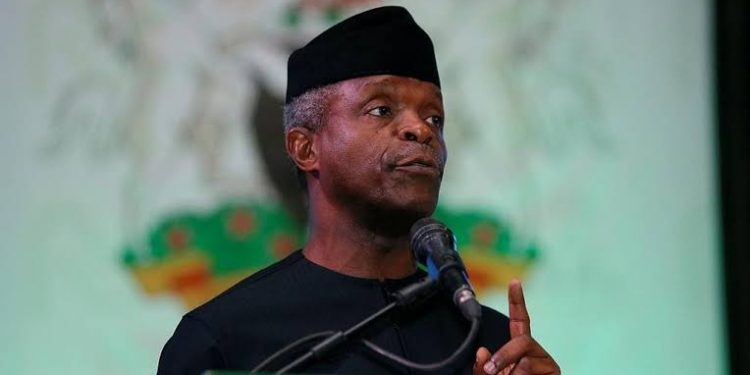By Chioma Iruke
Nigeria’s Vice President, Yemi Osinbajo, has assured of his principal’s commitment to signing the Petroleum Industry Bill (PIB), which has just been passed by the National Assembly.
Represented by the Minister of State for Petroleum Resources, Mr. Timipre Sylva while declaring open the 20th Nigeria Oil and Gas (NOG) Conference and Exhibition in Abuja, Osinbajo described the passage of the legislation as a “feat”, noting that he was not unmindful of the challenges faced by operators in the oil and gas sector.
He said the global lockdown triggered by the COVID-19 pandemic had pushed the industry into a state of major economic crisis and further amplified the global clamour for cleaner and more sustainable renewable energy.
He added that the federal government is encouraging industry players to focus on the country’s vast natural gas resources as a transition fuel that will function as a bridge between the dominant fossil fuels of today and the cleaner energy of tomorrow.
“We are not unmindful of the peculiar challenges confronting the oil and gas operators in Nigeria from infrastructural deficiencies and insecurity to the high cost of operation, to mention just a few.
“The government is working consciously to tackle all without lagging behind on our path to meeting the global demand that our signatory to international protocols on cleaner energy have placed on us,” Osinbajo added.
“As you are aware, just last week, the National Assembly passed the long-awaited Petroleum Industry Bill. This unprecedented feat has been adjudged as a watershed moment for our nation.
“Let me assure you that the bill when transmitted to the presidency for assent, would receive necessary and timely consideration. Infrastructural development, security issues, high cost of operations and other various issues are well covered in this all-encompassing bill.
“On behalf of the government, I can assure you that the eventual Act, if fully operational, its governance, administrative and fiscal provisions will be some of the most attractive in Africa,” he added.
On his part, the Secretary General of the Organization of the Petroleum Exporting Countries (OPEC) Mohammad Sanusi Barkindo, thanked the leadership of Nigeria for its unwavering commitment and continuous support of OPEC over its five-decades of Membership.
He lauded Nigeria’s contributions to promoting sustainable stability in the global oil market and its influential role in the OPEC and non-OPEC Declaration of Cooperation (DoC).
“OPEC is deeply indebted to HE Muhammadu Buhari, President of Nigeria, for the leading role he has played and continues to play in support of the Declaration of Cooperation process. This historic achievement has ushered in a new era in global energy cooperation,” Barkindo stated.
He added: “Over the last five decades, OPEC and Nigeria have sown the seeds of friendship to build a highly fruitful and mutually beneficial relationship, forging strong ties that will last forever.” In underscoring Nigeria’s contribution to the Organization, he noted that over its 50 years of Membership, the country has provided OPEC with 23 Heads of Delegation, six of whom served as President of the Conference. Nigeria has also proffered the Organization with four Secretaries General.
In this context, the Secretary General underlined the key role of innovation, technology and science in the energy industry, which has resulted in cutting-edge solutions such as carbon capture, utilization and storage (CCUS), as well as hydrogen.




































